b. March 4th, 1909 in Dayton (Tennessee)
d. July 30th, 2003 in Boston (Massachusetts)
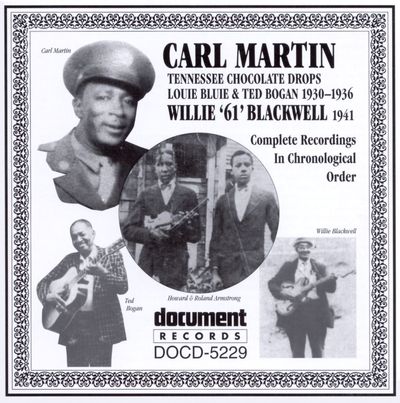
COMPLETE RECORDED WORKS
Document
April 1930 / March 1934
Multi-instrumentiste, dessinateur, peintre, capable de parler plusieurs langues, Howard Armstrong ne manque pas de talent. Originaire du Tennessee, il grandit à LaFollette au nord de l'état. Il apprend le violon en autodidacte puis rejoint les frères Carl & Blind Roland Martin avec lesquels il tourne dans les états du sud. Avec Carl Martin, il forme les Tennessee Chocolate Drops, un groupe qui grave deux morceaux pour Vocalion en avril 1930. En 1934, Howard et Ted Bogan enregistrent deux autres titres pour Bluebird ("State Street rag", "Ted's stomp"). Après la guerre, Howard s'installe dans la région de Detroit pour travailler dans l'industrie automobile (jusqu'à sa retraite en 1971).
Multi-instrumentalist, draftsman, painter, able to speak several languages, Howard Armstrong does not lack talent. Originally from Tennessee, he grew up in LaFollette in the north of the state. He is self-taught on violin and then joined the brothers Carl & Blind Roland Martin with whom he tours in the southern states. With Carl Martin, he formed the Tennessee Chocolate Drops, a band that recorded two tracks for Vocalion in april 1930. In 1934, Howard and Ted Bogan recorded two other titles for Bluebird ("State Street rag", "Ted's stomp"). After the war, Howard settled in the Detroit area to work in the automotive industry (until his retirement in 1971).
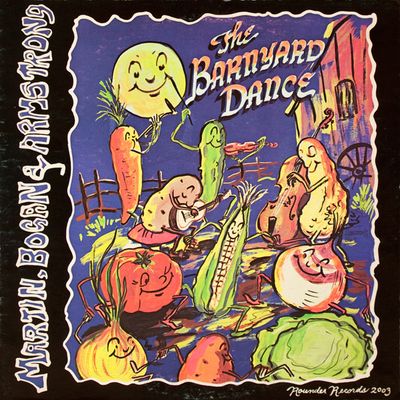
BARNYARD DANCE
Rounder
March 1972
Premier LP pour le trio Martin, Bogan & Armstrong supervisé par Bruce Kaplan : Carl Martin (mandoline), Ted Bogan (guitare), Howard Armstrong (violon et auteur de la peinture illustrant la pochette) et une petite aide de L.C. Armstrong (basse), le frère d'Howard. Un programme Folk-Blues parfois inégal mais globalement intéressant ("Carl's blues", "Mean mistreatin' mama", "Old man mose").
First LP for the Martin, Bogan & Armstrong trio supervised by Bruce Kaplan : Carl Martin (mandolin), Ted Bogan (guitar), Howard Armstrong (violin and author of the painting illustrating the cover sleeve) and a little help from L.C. Armstrong (bass), Howard's brother. A Folk-Blues program sometimes uneven but globally interesting ("Carl's blues", "Mean mistreatin' mama", "Old man mose").
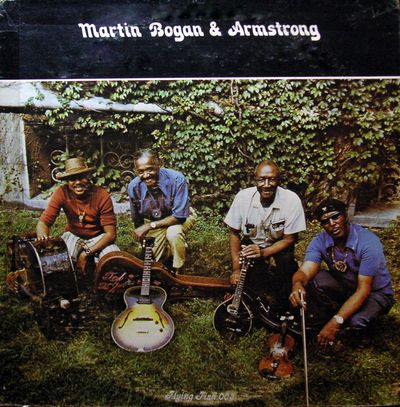
MARTIN, BOGAN & ARMSTRONG
Flying Fish
Sonet
1974
Second album pour le trio de vétérans bluesmen Martin, Bogan & Armstrong (en fait ils sont quatre puisque Tom Armstrong - fils d'Howard Armstrong - a rejoint le groupe) produit par Bruce Kaplan. Dans la tradition des string-bands - très inspirés et très en verve - ils livrent un opus rafraichissant et agréable entre Blues et Folk avec quelques incursions Jazz et Country. Il faut écouter les superbes "Do you call that a buddy", "If you'se a viper", "They cut down the old pine tree", "You'll never find another kanaka like me".
Second album for the trio of veterans bluesmen Martin, Bogan & Armstrong (in fact they are four since Tom Armstrong - son of Howard Armstrong - joined the band) produced by Bruce Kaplan. In the tradition of string-bands - very inspired and in verve - they deliver a refreshing and pleasant opus between Blues and Folk with some Jazz and Country incursions. You have to listen to the superb "Do you call that a buddy", "If you'se a viper", "They cut down the old pine tree", "You'll never find another kanaka like me".
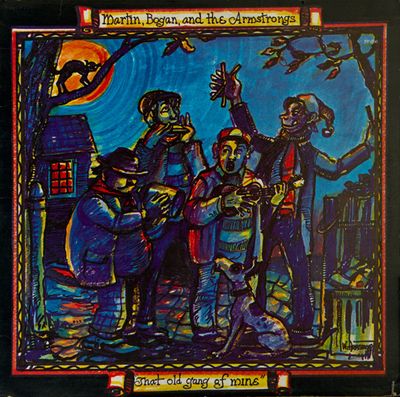
THAT OLD GANG OF MINE
Flying Fish
January 1975 - Fall 1977
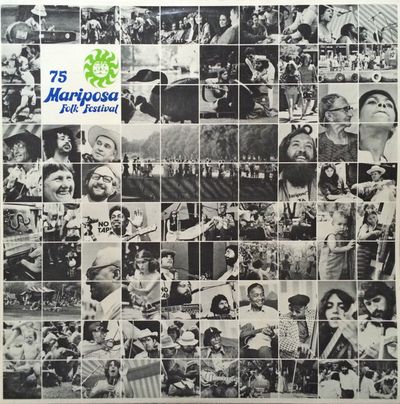
MARIPOSA FOLK FESTIVAL '75
Mariposa Folk Festival
June 1975
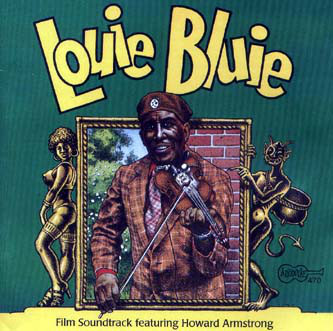
LOUIE BLUIE : FILM SOUNDTRACK
Arhoolie
1985
Musique originale du documentaire tourné par Terry Zwigoff. Consacré essentiellement à Howard Armstrong, on retrouve aussi Ted Bogan, "Banjo Ikey" Robinson et "Yank" Rachell dans le film. Pleine de vie, cette bande-son enthousiasme l'auditeur avec ce répertoire entre Blues, Ragtime et thèmes folkloriques : "That'll never happen no more", "Darktown strutter's ball", "When he calls me I will answer", "Railroad blues" et d'autres.
Original music from the documentary filmed by Terry Zwigoff. Devoted mainly to Howard Armstrong, we also find Ted Bogan, "Banjo Ikey" Robinson and "Yank" Rachell in the film. This soundtrack enthralls the listener with this repertoire between Blues, Ragtime and folk themes : "That'll never happen no more", "Darktown strutter's ball", "When he calls me I will answer", "Railroad blues" and others.
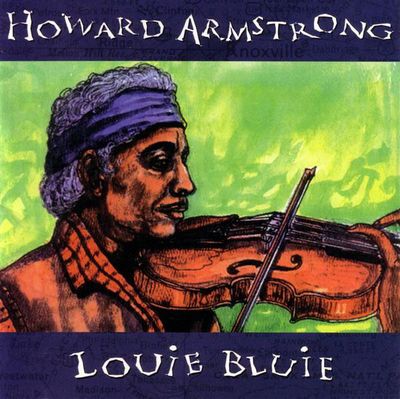
LOUIE BLUIE
Blue Suit
1995
Il s'agit, en fait, du seul album personnel d'Howard Armstrong. Capable d'embrasser presque tous les styles musicaux (Jazz, Blues, Ragtime, Country & Western, airs folkloriques), il propose ici un voyage instructif au coeur des musiques traditionnelles américaines joliment produit par Bob Seeman et John Rockwood. On peut ressortir de cet excellent programme "Lady be good" (qu'il reprend à George Gershwin), "Howard's rag", "Louie Bluie blues" et une version impressionnante de "Summertime" qu'Howard interprète seul au violon.
It is, in fact, the only personal album of Howard Armstrong. Able to embrace almost any musical style (Jazz, Blues, Ragtime, Country & Western, Folk tunes), he offers here an informative journey in the heart of the american traditional music beautifully produced by Bob Seeman and John Rockwood. We can point out from this excellent program "Lady be good" (a composition of George Gershwin), "Howard's rag", "Louie Bluie blues" and an impressive version of "Summertime" that Howard plays alone on the violin.
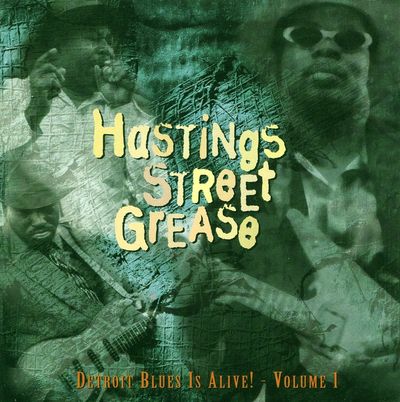
DETROIT BLUES IS ALIVE vol.1 : HASTINGS GREASE STREET
Blue Suit
1998
Son dernier titre est une reprise de "Good morning Judge" enregistrée en 1998. Howard décède pendant l'été 2003, à 94 ans, d'un arrêt cardiaque.
His last title is a cover of "Good morning Judge" recorded in 1998. Howard dies in the summer of 2003, aged 94 years, of cardiac arrest.